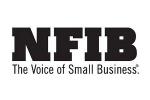NASHVILLE, Tenn. — Dry cleaners don’t enter the industry to become experts in accounting, business law and tax filing, but if they don’t pay attention and understand the basics, they could be setting themselves up for pain come tax time.
During her recent talk, “Tax-Saving Strategies for 2024: Choosing the Right Entity and Hiring Your Kids,” presenter Jamie Trull offered owners of small business some things to look for (or look out for) when it comes to setting up a company and maintaining its cash flow. The webinar was hosted by the National Federation of Independent Business (NFIB).
Trull was the director of finance for a Fortune 500 company and is now the owner of Balance CFO, where she is a financial literacy coach and profit strategist. In Part 1 of this series, she described the various business entities available to companies, and today, we’ll dive into how these business structures and treatments can affect a company’s tax liability.
The Pros and Cons of S Corps
As pointed out in Part 1 of this series, many business owners elect to have their LLCs be taxed as S Corps. There are advantages to this, Trull says, as long as the owner also understands the potential downsides.
“The main pro, and the reason most people do this, is that you can potentially save on taxes, and sometimes fairly big,” Trull says. “There are some additional benefits you can get with an S Corp, but that’s the main one.”
The main con? “It does require more administrative work and cost — accounting, additional filing costs, and so on — and there are more rules,” Trull says. “There are more things you can do wrong. You want to be clear and make sure that you’re following the rules, because if you don’t, that could have consequences later down the line.”
The main determination that can point an owner in the right direction, Trull says, is the profit made by the business.
“You really need to do an analysis with someone who is very familiar with the rules and can look at your specific tax situation to determine if it makes sense for you,” she says. “I would say to start looking at it around $70,000 to $100,000 in net profit after business expenses. That’s a time to start those conversations. Before that point, it’s not really going to be impactful when you consider the additional costs.”
S Corp Myths
Trull offers the three most common myths about S Corps that she hears.
S Corps Always Save You Money — Administrative costs and additional state taxes can sometimes offset the federal payroll tax benefit. “If you don't have the net profit to support it,” Trull says, “there may not be enough tax savings.”
Even professionals can lose sight of this fact, she’s found.
“One of the things that I hear almost daily are people that set themselves up as an S Corp, or even their accountants set them up,” she says, “and they really shouldn't have been because they don't have the net profit to support it. Now they're trying to unwind it all and go back. This is a very common issue that I see small business owners having.”
You Should Be an S Corp if You Make Over $XX in Profit — When an S Corp makes sense is highly dependent on the individual tax situation of the owner, Trull says, urging owners to have a detailed analysis performed before deciding.
“That's a good time to say, ‘here's when you should start looking at it,’” Trull says of the $70,000 to $100,000 threshold, “but it doesn't work anymore to do a ‘back of the envelope’ calculation for this, because of the way the tax laws have changed.
And, while there might be some tax savings on the federal level for being an S Corp, the state the business is located in can also affect this decision. “I live in Tennessee, and I am an S Corp,” Trull says. “My threshold for when it made sense to become one was much higher, because Tennessee actually taxes S corporations more than had I just been an LLC taxed as a single entity. There are certain states that have additional business taxes, franchise taxes, excise taxes, and so on that apply differently to an S Corp than they would to an LLC.”
S Corps Aren’t World the Trouble — “They absolutely can be great tax savings tools for the right businesses,” Trull says, “But do your due diligence first.”
While there is some administrative heavy lifting to do to set up an S Corp, that is mostly over once the processes are in place. “It’s initially getting over the hump of getting everything set up that takes a little time and care, including the consultation with a professional, but it can absolutely be worth it,” she says.
The Math of an S Corp
So, how does an S Corp present advantages that the LLC doesn’t? Trull says it comes down to how the dollars the owner takes home are counted.
Trull uses the example of a business making $100,000 in profit before owner wages are taken out. In an LLC taxed as a sole proprietorship, that entire $100,000 would be subject to both income and self-employment tax. Assuming a 25% income tax rate (for $25,000) and a 15.3% self-employment tax rate (for $15,300), the total tax liability would come to $40,300.
If that same $100,000 is earned by an LLC taxed as an S Corp, however, the owner could pay themselves $60,000 as salary, or “earned” income, leaving $40,000 as “unearned” income. The $60,000 would be subject to the self-employment tax, where the $40,000 would not, saving $6,120 in this case.
While there might be a temptation for the owner to take little or no salary, and instead draw on the unearned income from business profits, Trull strongly advises against this.
“Pay yourself a reasonable salary,” she says. “This is critical if you are active in your business, which most small-business owners are. If and when the IRS comes knocking at your door, you would need to support that salary. If you were actively working in your business and paying yourself $0, or you're working 40 hours a week and paying yourself $10,000, that's going to be hard to support. You do not want to deal with back taxes, fines and interest. It is not fun if they reclassify some of your income and profit as salary. That's going to cost you a good bit of money.”
Trull also tells owners to not use common “rules of thumb” to come up with the salary.
“The ‘50/50’ and ‘60/40’ rules show up nowhere in IRS guidance,” she says. “They are actively used by some accountants, but they shouldn’t be the end-all and be-all consideration. Document your considerations, and this might require having a detailed study performed.”
To make their salary truly defensible, Trull says that owners should consider what they would pay someone else to perform their core job functions in the business.
“Don’t set your salary too high, or you might miss out on the tax savings of an S Corp,” she says. “Using the ‘50/50’ and ‘60/40’ rules could put the salary too high. Also, review your salary regularly, especially as your business and duties change.”
Come back Thursday for the conclusion of this series, where we’ll examine the benefits of owners including their children in the business, and the best way to handle the accounting of their labor. For Part 1 of this series, click HERE.
Have a question or comment? E-mail our editor Dave Davis at [email protected].





























